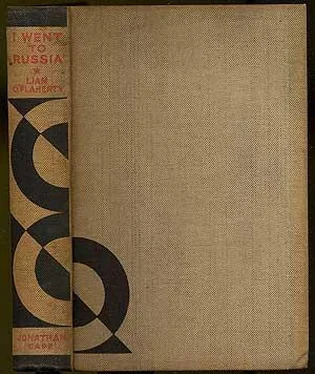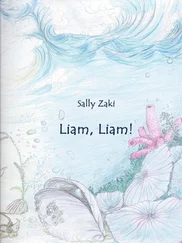Liam O'Flaherty - I Went to Russia
Здесь есть возможность читать онлайн «Liam O'Flaherty - I Went to Russia» весь текст электронной книги совершенно бесплатно (целиком полную версию без сокращений). В некоторых случаях можно слушать аудио, скачать через торрент в формате fb2 и присутствует краткое содержание. Город: London, Год выпуска: 2011, ISBN: 2011, Издательство: Bloomsbury Publishing, Жанр: Публицистика, на английском языке. Описание произведения, (предисловие) а так же отзывы посетителей доступны на портале библиотеки ЛибКат.
- Название:I Went to Russia
- Автор:
- Издательство:Bloomsbury Publishing
- Жанр:
- Год:2011
- Город:London
- ISBN:9781448205592
- Рейтинг книги:5 / 5. Голосов: 1
-
Избранное:Добавить в избранное
- Отзывы:
-
Ваша оценка:
- 100
- 1
- 2
- 3
- 4
- 5
I Went to Russia: краткое содержание, описание и аннотация
Предлагаем к чтению аннотацию, описание, краткое содержание или предисловие (зависит от того, что написал сам автор книги «I Went to Russia»). Если вы не нашли необходимую информацию о книге — напишите в комментариях, мы постараемся отыскать её.
I Went to Russia — читать онлайн бесплатно полную книгу (весь текст) целиком
Ниже представлен текст книги, разбитый по страницам. Система сохранения места последней прочитанной страницы, позволяет с удобством читать онлайн бесплатно книгу «I Went to Russia», без необходимости каждый раз заново искать на чём Вы остановились. Поставьте закладку, и сможете в любой момент перейти на страницу, на которой закончили чтение.
Интервал:
Закладка:
While I thought, leaning over the side, the doctor returned and said:
‘See that yacht? Good sport, with yacht. I once go to Stockholm from Leningrad in yacht. I am a member of Workers’ Yachting Club in Leningrad. Formerly it was belonging to the Tsar. Yes?’
He walked on and I continued to think:
‘Certainly there is nothing artificial in his passion for yachting, as there is in the passion of Jews in capitalistic countries for adopting the sports and habits that are essentially Gentile. Seeing a Jew riding a horse in Rotten Row is a pathetic sight. One can read in his face that he is aware of the contempt and hostility of the watching Gentiles. Even when one of them is extremely rich and powerful, he knows that even the meanest and poorest Gentile still sneers at him as a “dirty Jew.” What an amazing phenomenon! Even I myself, who admire Jews for their intelligence, their generosity, their kindness, cannot help feeling that they are inferior. What is it?’
Suddenly I hoped that the Russian Revolution would at last liberate the Jews. And then, as if he had read my thoughts, the chief mate approached at that moment and said:
‘Tell me. You notice Jews on ship?’
‘Yes. I have noticed them.’
‘In your country no Jews on ships?’
‘Only as stewards.’
‘Here lots of them. How many you count already?’
‘Three.’
‘I count seven,’ he said. ‘Perhaps I find more. Now in Russia I think everybody become Jew. I get afraid. I think, maybe, I wake up in morning and find myself Jew. Ach! What good Jew on ship? In storm what good Jew? No understand sea. Not man like you and me. All wrong. This ship all wrong. No profit. Too much crew. No work enough. All for propaganda. If this ship owned by private company then everything different. Private company has to make profit, so they find good crew and make everybody work.’
He sighed and added:
‘On this ship captain good sailor. Second mate good sailor. Bo’sun good. Chief engineer also good. The others no good. I go small sleep.’
He was stupid. He had not the quick intelligence of the doctor, nor the world consciousness, nor the will to achieve things beyond his immediate environment. He was a common fellow; decent, kind, efficient at his work, but common. Yet if I were asked to choose between saving him and the doctor from death I should choose to save him. His blood and his nature were more akin to mine than the doctor’s. Even though he was stupid, he might breed genius. The doctor, I felt, could never breed anything but inquisitive, analytic brats, without the earth’s rich, violent exuberance. I found that strange.
Yet how illogical! The mate disliked seeing Jews working as seamen; but only for the reason that they were good for buying and selling. Instead of being glad that they were giving up their nefarious habits, of trading for profit, and taking to difficult, badly paid, uncomfortable work like sea-faring, he would prefer that they stuck to their trading and left the dirty, unprofitable work to him and his kind. Of course, he implied that the Jews took to the sea for ulterior motives, to use the ship as a medium of propaganda, instead of using it for the purpose for which man had invented it.
And as the mate was a typical Russian, of the old nationalistic type, obviously one of many millions of similar Russians, I became afraid that the Jews would not succeed in ‘liquidating’ themselves by means of Communism; no more than they succeeded in ‘liquidating’ themselves by means of Christianity. But in any case, the question is not of great importance, at least when compared with other more vital questions arising out of the giant Proletarian Revolution.
Norway ahoy! It is an astounding country. If one looks at it on the map, one is amazed at how it ‘manages to stick together. It seems to be all rivers, like a soft road after sudden, heavy rain. Nobody would ever suspect people of living there. One shudders at the very thought of living there. Yet, in reality, it is as fresh and green, almost, as Ireland. Although it was still April, I saw signs of full blown spring on either side of the ship, green fields, woods, pretty houses, cattle, human beings fully equipped in modern fashion. The doctor told me that part of Norway was farther south than Moscow. I was startled.
‘Really,’ I said. ‘I wish I had stayed at home. I detest cold.’
‘Yes?’ he said. ‘I like cold. I make expedition on ice-breaker Krassin to North Pole to save Italian explorers. Very good. Very much learn. Very soon, Soviet Union stretch to North Pole. Very interesting Soviet movement among Esquimos and such other illiterate people. Very interesting when there is autonomous Soviet Republic of North Polar Regions.’
Devil take it! The doctor was beginning to make me feel inferior. I began to grow jealous of his enthusiasm, his sanity, his interest: in the world, his assurance that the Revolution would inevitably succeed, spread out and cover the earth.
‘No,’ I thought. ‘It’s no good fighting against this urge to become a Bolshevik, by sub-consciously accusing the Revolution of being inspired by Jews or by sub-consciously persuading myself that it is going to develop into a movement of Russian nationalist expansion. What power it has! Its grandeur and the immense possibilities of its future spring to my mind, as soon as I bring it to bear on any question.’
Yet I kept on fighting against it, trying to keep it outside myself and to watch it with cynical detachment. Or perhaps it was because we were in sight of Norway that I was trying to feel more detached. While the ship was at sea, I was completely surrounded by a Bolshevik world. There was nothing to contrast with it, nothing to denote that a bourgeois world existed, except the abnormal sounds distributed by the Broadcasting Company. It was like being in a church, where even atheists are affected by the grandeur of the priest, who wears shining garments, murmurs strange words and swings a thurible, from which perfumes of an exciting nature issue to drug the senses into a belief that God really exists. The same priest, dressed in a similar manner in a public street, swinging the same incense, but surrounded by traffic and the indifferent crowd of a city, is merely an object of ridicule for young children, who point at him and say: ‘Look at the funny man, daddy.’ No religion, whether it is Bolshevism or Christianity, is really impressive when confronted with the gross realities of life.
That evening, after supper, I had a further conversation with the captain. In keeping with my mood, I found that he also was less impressive. We discussed literature, history, politics. He amazed me as much by all he knew as by his incapacity for thought, when confronted with abstract ideas and with the necessity for judging what he had read in the light of his own intellect. He did not question anything which had been written by his own prophets, Marx, Lenin and such people. He denied everything which they denied and refused to find virtue in anything that was opposed to the dictatorship of the proletariat; except, perhaps, things that were essentially favourable to his position as a Russian, such as Morosov’s insane dream of a Byzantine world Empire. I also felt that he talked in order to impress, in order to air all he knew in the hearing of a foreign writer. And he then went to bed with a book by Edgar Wallace.
I awoke next morning to find myself confronted by the whole beauty of Norway. Through the open port-hole I saw a mountain rising like a wall, covered with trees, snow and dazzling sunlight. The ship rode at anchor. The air was still and warm. The mountain seemed to be within arm’s reach. Yet the pine trees on its side seemed the size of geranium plants. It was overwhelmingly beautiful. I crawled on tip-toe to the porthole and stuck out my head, making no sound; either afraid of breaking the spell of the mountain’s beauty by sound, or through fear that it was unreal, a ghost that would fly from sound. But it stayed and, becoming assured of its reality, I cried out and looked joyously from side to side, at the mountain’s snowy summit, blazing in the sun, at the blue lagoon that wound away to the left , at little Odda to the right, within its mountain walls. Oh! How gorgeous it looked! What a birthplace for Vikings!
Читать дальшеИнтервал:
Закладка:
Похожие книги на «I Went to Russia»
Представляем Вашему вниманию похожие книги на «I Went to Russia» списком для выбора. Мы отобрали схожую по названию и смыслу литературу в надежде предоставить читателям больше вариантов отыскать новые, интересные, ещё непрочитанные произведения.
Обсуждение, отзывы о книге «I Went to Russia» и просто собственные мнения читателей. Оставьте ваши комментарии, напишите, что Вы думаете о произведении, его смысле или главных героях. Укажите что конкретно понравилось, а что нет, и почему Вы так считаете.












